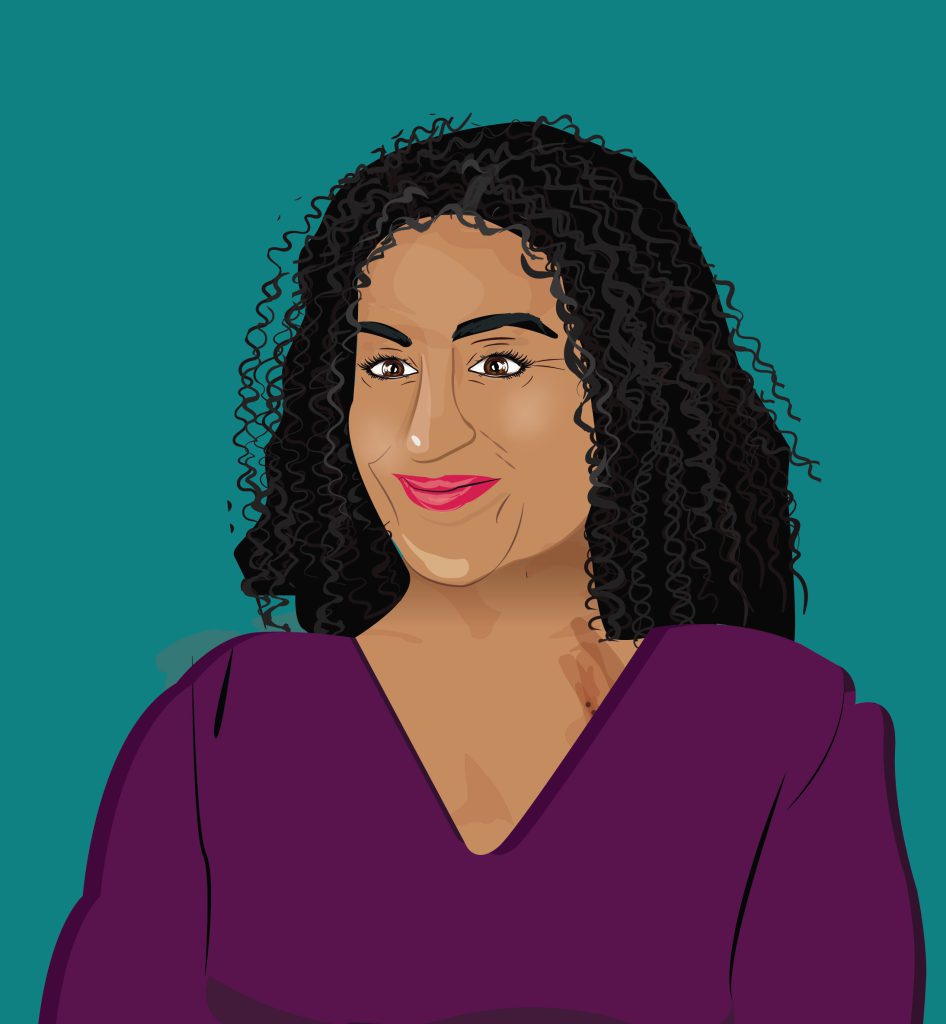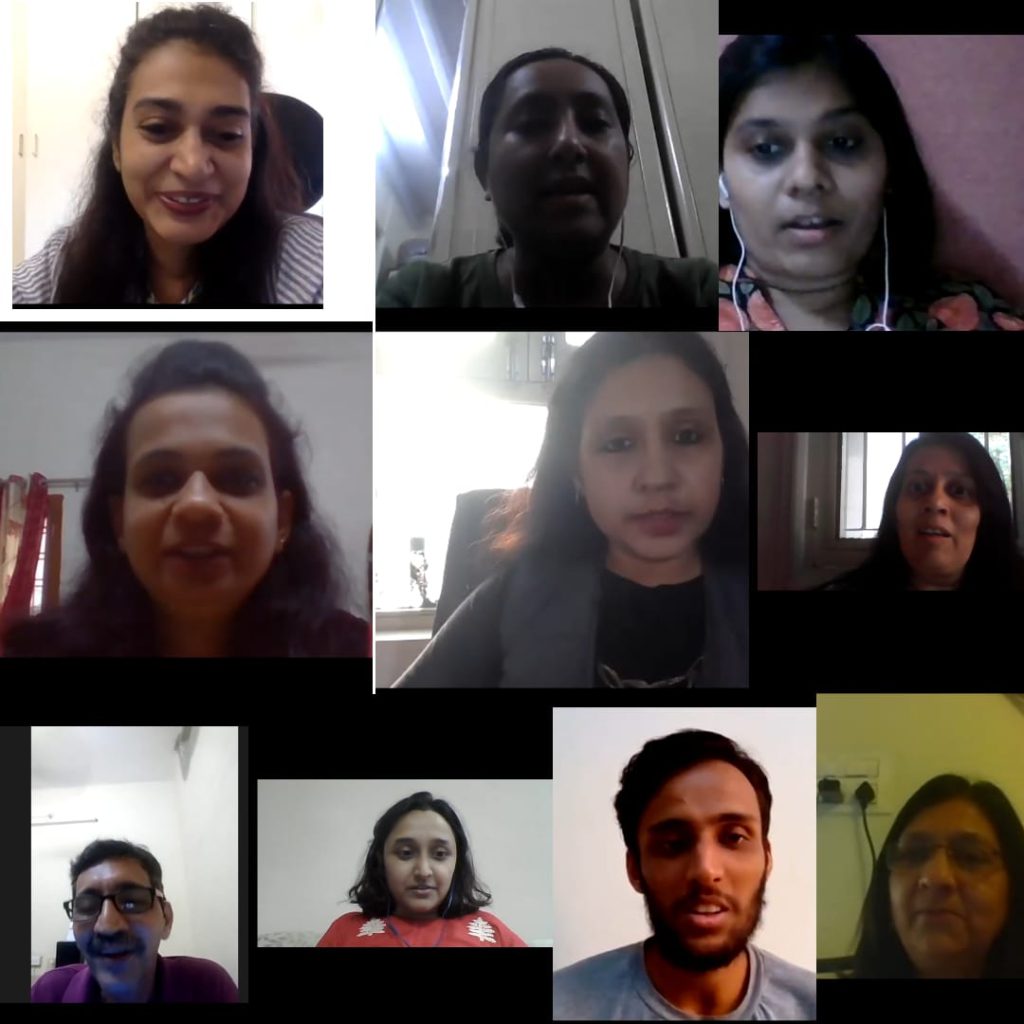Dear Maasi: How do you navigate being a public advocate on female genital cutting while dating?

Dear Maasi is a column about everything you wanted to know about sex and relationships but were afraid to ask! It’s a partnership between Sahiyo and WeSpeakOut, and is for all of us who have questions about khatna (female genital mutilation/cutting or FGM/C) and how it impacts our bodies, minds, sexualities and relationships. We welcome you to submit your anonymous questions. Dear Maasi, How do you navigate being a public advocate on female genital mutilation/cutting (FGM/C) while being so exposed and having your identity conflated with such a deeply personal issue? This is particularly tough in the world of online dating. —Anonymous Dear Anonymous, This is a great question, and I think many survivors who have chosen to be “out” in the public realm have had to grapple with this situation. To be clear, it is a choice to be a public advocate, and everyone has to make the choice that’s best for them. People assume so many things about us FGM/C survivors, don’t they, Anonymous? It’s such a stigmatized issue, that people don’t understand that we are all different. We remember differently. We have different symptoms. We have different sexual functioning. We have different religious beliefs and connections to our families and communities. In other words, you can’t assume anything about an FGM/C survivor. And yet people do. These assumptions create shame and can be entirely inaccurate. Many of us, at the time of the original trauma, were told, “This is nothing; don’t cry,” and “This is a secret; don’t talk.” Therefore, speaking publicly about how FGM/C is harmful can seem wrong or shameful. At the same time, as kids, we probably didn’t understand what was happening to our bodies; and as a coping strategy, children tend to blame themselves rather than the trusted adults. Thinking it’s our fault creates shame. All of this to say that FGM/C can leave us with a lot of shame. I’ll come back to this in a bit. I’ve been an activist since 2015, but I was super nervous about being public. I admired and envied my activist sisters who could openly discuss their survivor experiences. While they were the best role models and supporters, I couldn’t follow their examples. When I tried, I’d dissociate, feel exhausted and unwell; my body signaled a big “no” to me. I wasn’t ready. The hitch was that I was finishing a novel about FGM/C in my community, and I knew that I’d be asked about my personal connection to the issues at festivals and in media interviews. Despite the dread I felt, I knew I had to work through my anxieties and become ready. But this wasn’t a simple process. I returned to therapy. I did mock interviews where friends asked the most intrusive questions, and I had to sort out my boundaries and decide how to answer. I had to challenge my own beliefs and stereotypes about what it means to be a survivor. I wrote Seven Things Not to Ask A Khatna Survivor, both for myself, my friends and readers. Still, I was nervous. And then something unexpected happened at the beginning of my book tour. I didn’t feel dread. My body began to say yes to public speaking. I saw the questions that came my way as opportunities, not intrusions. I haven’t stopped talking about it since I started, over three months ago. And I’ve been fine. Better than that, I’ve felt liberated from the shame. This is a long way of saying that people will continue to make assumptions about me—and to conflate khatna/FGM/C with my identity, perhaps for the rest of my life—and because I have no shame about it, I no longer care. I have a feeling that this works similarly with any marginalized identity or experience we hold. When we surface and work through our internalized shame about being racialized, or women, or Muslim or fat or poor or disabled or queer or older or depressed or chronically ill, we liberate ourselves. The process of moving from shame to liberation will look different for each of us. I think the first step is acknowledging any shame you might feel. Here are a few questions to ask yourself (and while doing so, notice your emotions and your body’s response): -What myths or assumptions exist about FGM/C survivors? List them. Which do I believe, even a little bit? -Is the cut to my genitals shameful? Are my genitals shameful? In what ways? -How do I feel if a neighbour or a colleague or a stranger knows I am a survivor? This brings us to online dating. It’s standard practice to Google a potential date and to scan their social media profiles. There’s probably no way to escape people knowing about us before they meet us. Mariya Karimjee talked about her experiences with dating, sex and being a public advocate on the Sex Gets Real podcast (Jan 29, 2017). At about the 48-minute mark, she describes the two kinds of men she’s met through online dating: the first who is “totally freaked out” by what they assume to be her “baggage,” and the second who imagines himself as someone who can “fix her with his magic penis.” We can assume that both these types of men are not worthy of anyone’s attention, Anonymous! A third type of date might be someone who understands that psychological and sexual trauma is common and their aftereffects varied. They don’t make any assumptions about us. This is the sort of person you can have interesting, complex and intimate conversations about your experiences, including those about being an FGM/C survivor and advocate. Check out September’s column for some tips on how to have these conversations. I’m hopeful that as we continue to do our advocacy, we’ll normalize conversations about FGM/C, and more people—including our neighbours, colleagues and potential dates—will be this kind of person. While you search for them, I hope that you will be shameless in the best kind of way. —Maasi About Maasi, aka Farzana Doctor:
Virtual Thaal Pe Charcha goes pan India

Sahiyo held an online Thaal Pe Charcha (TPC), which loosely translates as “discussions over food,” on October 31st. TPC is a flagship Sahiyo program typically held in person, but was conducted online due to safety during the pandemic. The current COVID-19 situation may have restricted this TPC to a virtual interaction and taken away the joy of relishing traditional Bohra cuisine. However, participants were satiated with the conversations that unfolded over the 2-hour program, and as noted by one participant, provided enough food for thought to go around at this event. The program lead and Sahiyo co-founder, Insia Dariwala, successfully incorporated creative activities so that participants could connect and bond with each other. Over the last three years, TPC has seen a lot of growth, and this was the first ever TPC where participants joined in from various cities in India, including Mumbai, Ahmedabad, Hyderabad and Pune. The success of any program lies in its ability to create sustainability and leadership. This was remarkably displayed by one of Sahiyo’s volunteers, Jumana, who under the guidance of Dariwala and Chandni Shiyal, independently organised and hosted TPC from her residence in Ahmedabad. The camaraderie between the participants was commendable, and it was heartening to see total strangers holding space for each other, and bonding over the shared pain of female genital cutting (FGC). Some of these women had never shared their stories with anyone, and needless to say, it was a catharsis for many. Other discussions also included male versus female circumcision, its relevance, consent of the child, and also medicalization of FGC. The event ended with many expressing a desire to host TPC in their own hometowns, and creating more opportunities to continue discussions on this topic.
